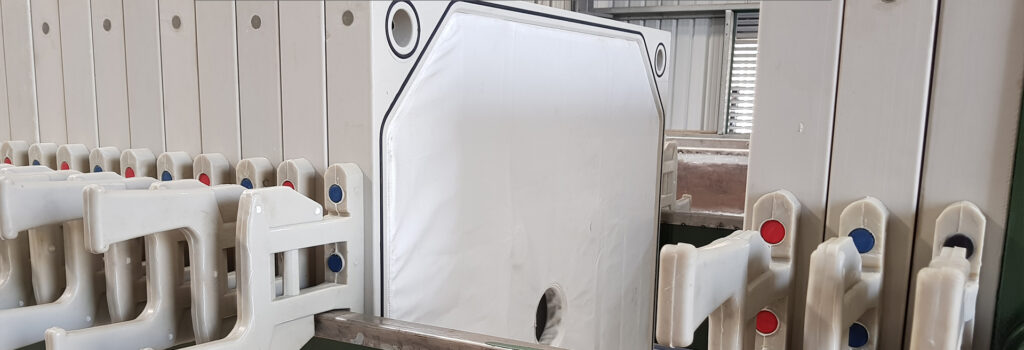- Company
- Products
- Filter Presses
- Recessed Filter Press
- Membrane Filter Press
- Plate & Frame Filter Press
- Semi-Automatic Filter Press
- Fully Automatic Filter Press
- High Pressure Filter Press
- CGR Zero leakage Filter Press
- Manual Filter Press
- Dialyser Filter Press
- Hand Hydraulic Filter Press
- Round Plate Filter Press
- Stainless Steel Filter Press
- Heat Stabilised Filter Press
- Overhanging Filter Press
- Filter Plates
- Automation & Auxiliary
- Filter Cloths
- Filter Presses
- Services
- About Us
- FAQs
- Blogs
- Application
- Gallery
- Contact Us

Chimodia Naka, Near Railway, Crossing Bilimora, Bilimora - Gujarat (India.) - 396321.
Request a Quote
Looking for a quality and affordable builder?

Toll Free
1-800-987-6543
Contact details
- Company
- Products
- Filter Presses
- Recessed Filter Press
- Membrane Filter Press
- Plate & Frame Filter Press
- Semi-Automatic Filter Press
- Fully Automatic Filter Press
- High Pressure Filter Press
- CGR Zero leakage Filter Press
- Manual Filter Press
- Dialyser Filter Press
- Hand Hydraulic Filter Press
- Round Plate Filter Press
- Stainless Steel Filter Press
- Heat Stabilised Filter Press
- Overhanging Filter Press
- Filter Plates
- Automation & Auxiliary
- Filter Cloths
- Filter Presses
- Services
- About Us
- FAQs
- Blogs
- Application
- Gallery
- Contact Us

Chimodia Naka, Near Railway, Crossing Bilimora, Bilimora - Gujarat (India.) - 396321.
Request a Quote
Looking for a quality and affordable builder?

Toll Free
1-800-987-6543
Contact details
Request a Quote
Looking for a quality and affordable builder?
When Should You Change Filter Press Cloth?
- Home
- When Should You Change Filter Press Cloth?
When Should You Change Filter Press Cloth?

Why Filter Press Cloth Matters
The filter press cloth is the heart of any filter press system. It determines the clarity of the filtrate and the quality of the filter cake. Without a properly functioning cloth, your filter press cannot deliver optimal performance—no matter how modern or automated your system is.
At N M Patel & Co., we understand how important it is to ensure your filter cloth remains in good condition to meet your production and regulatory standards. This guide will walk you through signs of wear, replacement timelines, and best practices.
Factors That Shorten Filter Cloth Life
Several environmental and operational factors reduce the life span of filter cloths:
Mechanical abrasion caused by the friction of plates.
Chemical degradation due to exposure to harsh process materials.
Blinding or clogging from fine particles that block the cloth’s pores.
As these factors accumulate, porosity decreases, slowing down filtration and affecting output quality.
How Often Should You Replace Filter Press Cloths?
There is no fixed expiration date for filter cloths, but visible performance issues and wear signs should alert you to take action. Below are five major indicators it’s time to replace your filter cloth:
1. Slower Filtration Cycle Times
If your filter press takes longer than usual to complete a cycle, it’s a sign the cloth is losing permeability. Monitor your filtration cycle durations regularly to spot performance drops early.
2. Tears or Holes in the Filter Cloth
With time, cloths can develop tears or holes from constant friction and harsh media, especially in industries like mining, ceramics, or metal processing.
Routine inspections during cleaning cycles can help detect early damage and avoid unexpected system downtime.
3. Reduced Filtrate Clarity
Industries such as pharmaceuticals, food and beverage, and wastewater treatment require crystal-clear filtrate. If the output appears cloudy or impure, the cloth may be underperforming and needs replacing.
4. High Moisture Content in Filter Cake
A dry, well-formed cake is the goal of any filter press. If you’re observing:
Wet, sludgy cakes
Poor separation
Excess liquid in solids
…it often points to cloth blinding or loss of filtration efficiency.
5. Frequent Blinding and Clogging
Blinding happens when fine particles block the cloth pores. While regular cleaning can help, persistent blinding is a sign the cloth material is worn out and cannot function properly anymore.
Improving Filter Cloth Longevity
Choosing the right filter cloth from the beginning can help prevent early failures. At N M Patel & Co., we offer:
Custom-fit filter cloths for various press models.
Material choices based on chemical resistance, particle size, and operating conditions.
Expert guidance to ensure maximum cloth lifespan.